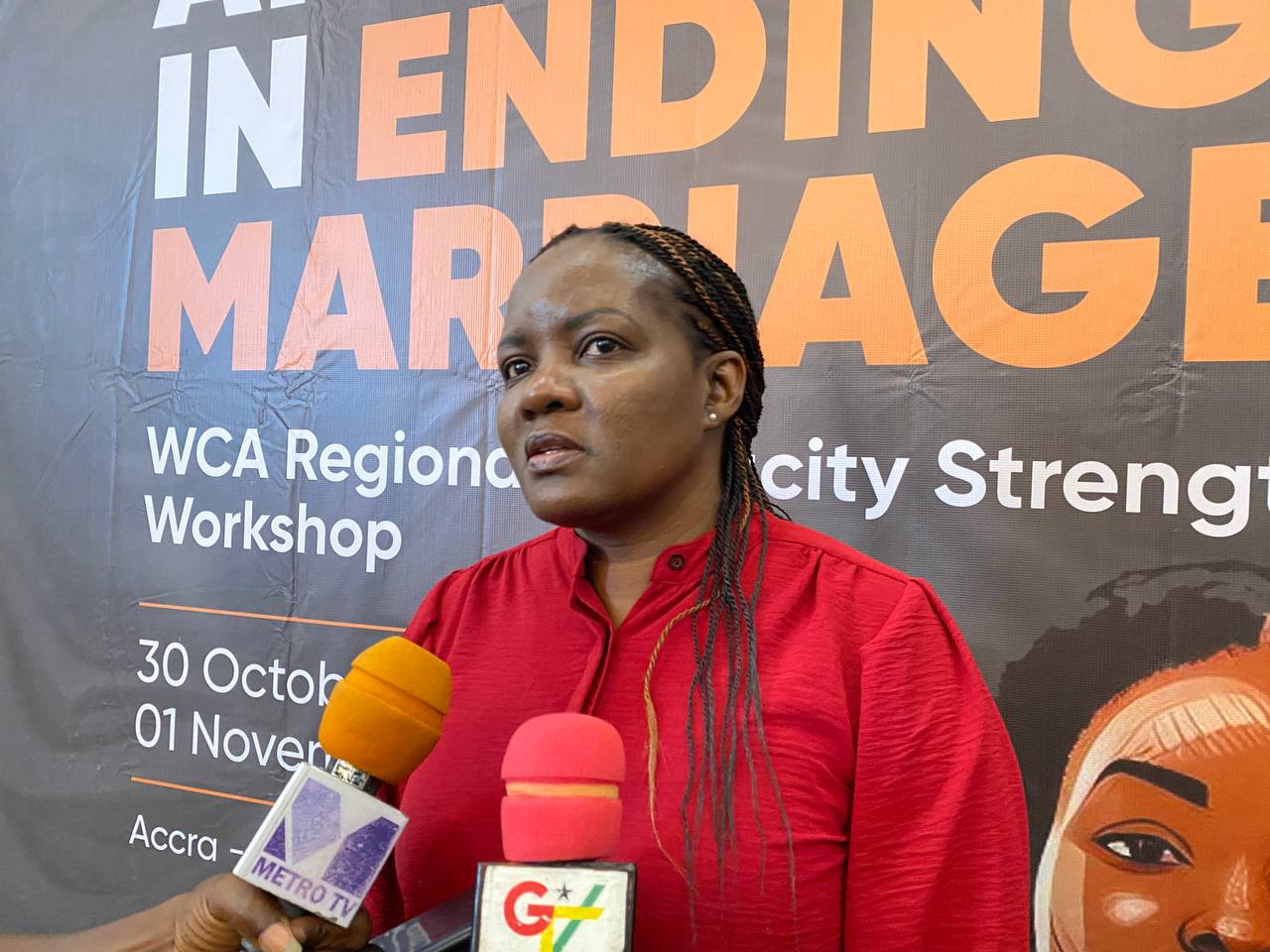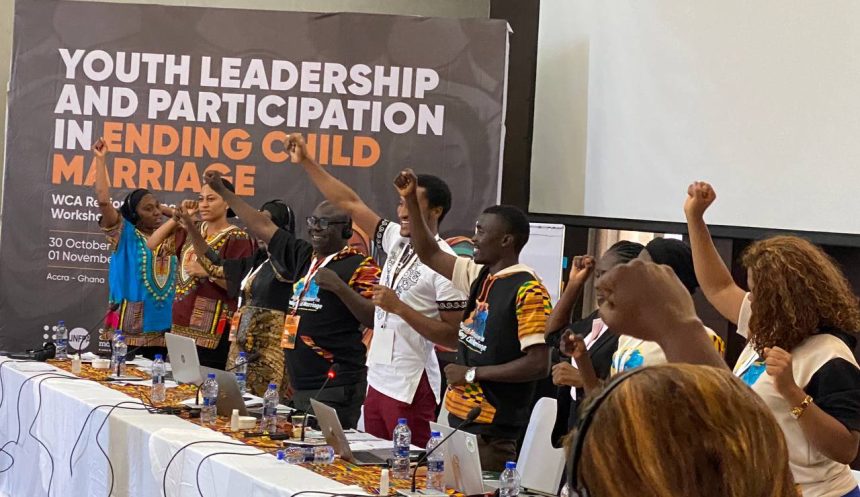The United Nations Population Fund (UNFPA) Western and Central Regional Office has recently hosted a crucial Youth Leadership and Participation Workshop in Ghana.
The event gathered young people from the region, providing a platform for an extensive discussion on novel strategies to eradicate the prevailing challenge of child marriage. This pivotal assembly highlighted the urgent need to address and resolve the persisting issues that perpetuate this social menace.
This workshop comes as part of the comprehensive Global Programme to End Child Marriage (GPECM), jointly executed by UNFPA and UNICEF since 2016. The concluding phase, Phase II, is set to wrap up by December this year, paving the way for an anticipated Phase III, scheduled to commence from January 2024 to 2030.

The resounding call to end child marriage echoed through the closing ceremony of the workshop as Minister for Chieftaincy and Religious Affairs, Hon. Stephen Asamoah Boateng, highlighted the urgency of the situation in the region, where 238 million girls have experienced forced marriage before turning 18, placing the region second in global child marriage prevalence.
He added that the practice has had profound adverse effects on the health, education, and overall development of adolescents and youth.
“Today, we stand at the crossroads of change, driven by our unwavering commitment to ending child marriage in the West and Central Africa Region, as we gather for the closing ceremony of the Youth Leadership and Participation Workshop.”
“In the region, 238 million girls have been forced into marriage before the age of 18, marking our region with the unfortunate distinction of having the second-highest child marriage prevalence worldwide. This practice has cast a long shadow over the health, education, and overall development of our adolescents and youth.”

With 64% of the West and Central African Region’s population being under 24 years old, Hon. Stephen Asamoah Boateng emphasized the critical need for empowering this demography with knowledge, skills, resources, and opportunities to confront the challenges faced by young people aged 10 to 24.
He stressed UNFPA’s global strategy, “My Body, My Life, My World,” advocating for youth leadership and participation, underscoring the significance of meaningful engagement to ensure the success of the Global Programme to End Child Marriage (GPECM).
“We must acknowledge that youth participation is not only a right but also aligns with the principles of meaningful adolescent and youth engagement. Inadequate youth participation can directly impact the achievement of our GPECM targets.”

Speaking to UniversNews after the workshop, the Western and Central Regional Program Specialist for Adolescents and Youth at UNFPA, Dr. Bernadette Ssebadduka articulated that the West and Central African Region is facing a grim reality, with child marriage persisting due to deeply ingrained gender and social norms.
She said that the region stands about 300 years away from ending this pervasive social ill, largely attributing this continuation to poverty, lack of education, and societal pressures compelling young individuals into early marriages or teenage pregnancies.
“We have also learned that this is a violation of their rights because anyone should be able to grow up and decide whether or not to marry and to also decide a partner of their choice,” she said.
Dr. Ssebadduka emphasized the dire need for evidence-based policy formulation that integrates the voices and experiences of young people affected by child marriage.
She stressed that policy makers need to perceive young individuals as allies and partners in this struggle and underscored the importance of educating and engaging religious networks on human rights issues and reproductive health to eradicate cultural practices that harm young girls, such as female genital mutilation.
“Only someone that has gone through child marriage can really tell us the sense of urgency that we need to end child marriage,” she added.

Nelly Wiah, a vibrant participant of the workshop from Liberia, succinctly encapsulated the collective sentiment echoed by the engaged youth at the workshop.
Nelly emphasized that child marriage detrimentally affects society and stressed the need for collaborative efforts amongst youth to drive change.
Reflecting on different experiences from diverse countries in the region, she acknowledged that while child marriage might not be as prevalent in her home country, there are instances where young girls seek older partners due to financial needs.
She was resolute in her commitment to advocate for comprehensive support, be it economic, financial, or through empowerment programs, to eradicate this practice.
“During the three days of workshop, I have learnt that child marriage is harmful to our society and we the youth need to put in more effort in changing that concept especially dealing with community leaders, traditional leaders, and religious leaders. What I am taking home is that we the youth need to put in more effort, we need to come together because we are divided in negative ways so we need to come together in order fight this idea of early child marriage.
“I have listened to different experiences from different countries and even though child marriage is not as high in our country as compared to other countries, we have situations where young girls go after older men because they need financial support. So I am going to take that back in my country and see how we can support each other either economically, financially, etc.”, she said.

As the workshop concluded, a resounding call for coordinated action and a reinvigorated approach to involve young people in policy-making and cultural change rang through the halls. The urgency was clear, and the resolve to end child marriage remained unshaken.
With the collective efforts of policymakers, communities, and young individuals themselves, there’s an unyielding commitment to sculpt a future free from the clutches of child marriage in the West and Central African Region.
–
Story by: Kelly Adjetey Boye | univers.ug.edu.gh





